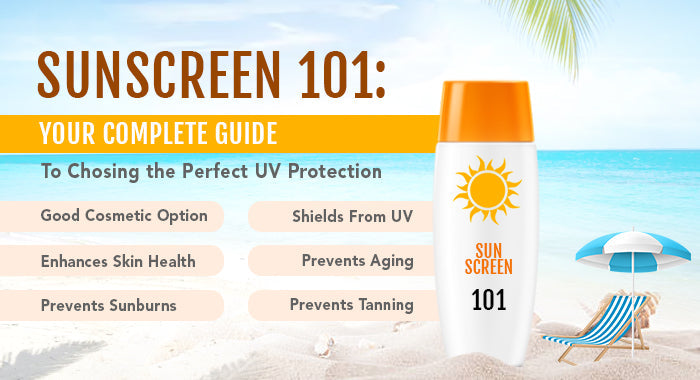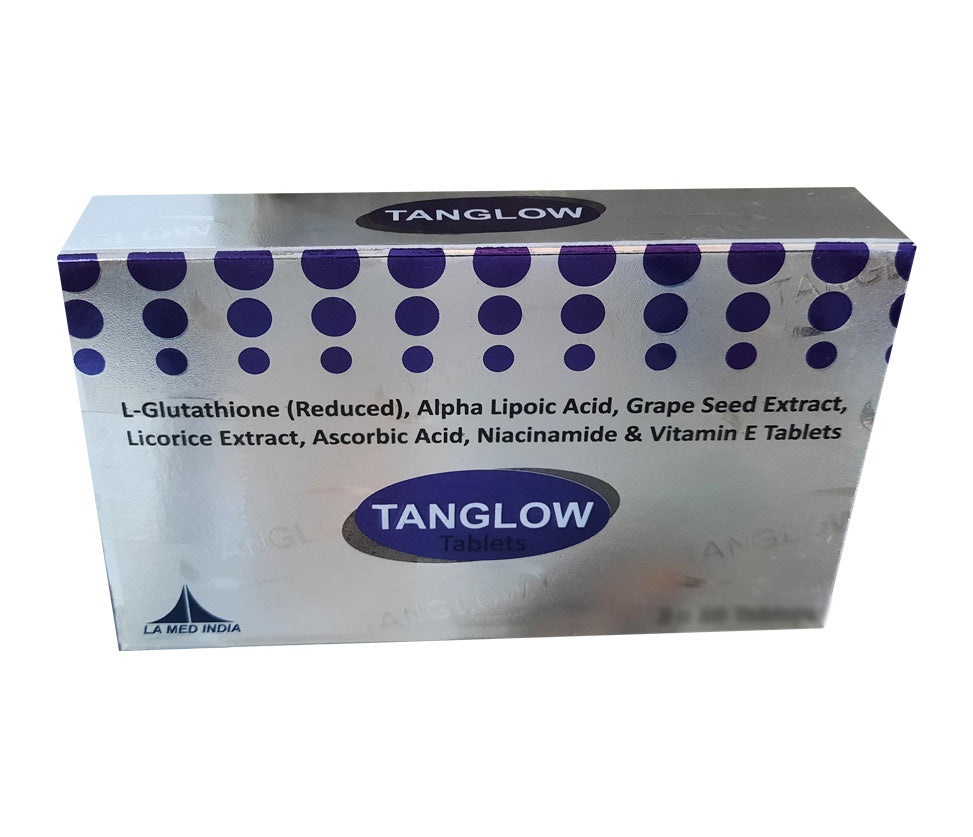Sunscreen 101: Your Complete Guide to Choosing the Perfect UV Protection

Introduction
Sunscreen is a protective shield, a topical lotion, cream, or gel that safeguards your skin from the sun's harmful ultraviolet (UV) radiation. Sunscreen works by absorbing, reflecting, or scattering ultraviolet (UV) rays before they harm your skin.
Sunscreens are available in various forms, such as creams, lotions, gels, sticks, and sprays.
Benefits of Applying Sunscreen
The role of sunscreen is to protect the skin from the sun's harmful ultraviolet (UV) rays, which can cause:
1. Hyperpigmentation
Prolonged exposure to the sun can cause increased melanin production, leading to skin darkening, known as hyperpigmentation.
2. Skin Tanning
Sunscreen helps to protect skin from tanning by acting as a barrier.
3. Uneven Skin Tone
Sun damage occurs when the skin is repeatedly exposed to UV rays. Brown or dark spots appear due to increased melanin production, giving the appearance of uneven skin tone.
4. Melasma
Melasma is a common skin condition that causes dark patches or freckle-like spots on the face, neck, arms, or other body parts. UV radiation can aggravate melasma.
5. Premature Aging
Exposure to UV rays can cause skin to lose elasticity, leading to wrinkles and dry skin. UV radiation damages collagen and elastin fibers, leading to wrinkles, loss of skin tone, and a saggy appearance.
6. Damaged Skin Barrier
UV light can damage the skin's physical and chemical barrier. UV exposure can reduce the skin barrier's functions, causing inflammation and infection.
7. Inflammation
Direct skin exposure to sunlight or UV radiation can result in sunburn, inflammation, photo aging and skin cancers.
8. Skin Cancer
One of sunscreen's most crucial roles is preventing skin cancer. UV radiation can damage the DNA of skin cells, leading to gene mutations and rapid cell division. These mutations can cause malignant tumors such as squamous, basal, and melanoma. Sunscreen acts as a barrier by reducing the risk of these harmful effects.
Factors to Consider While Selecting a Sunscreen
1. SPF (Sun Protection Factor)
SPF tells how well a sunscreen will shield skin from UVB rays, the radiation that damages the skin, causes sunburns and can contribute to skin cancer.
SPF scale is not linear:
- SPF 15 blocks 93% of UVB rays
- SPF 25 blocks 96% of UVB rays
- SPF 30 blocks 97% of UVB rays
- SPF 50 blocks 98% of UVB rays
Skin experts recommend using sunscreen with at least SPF 30. To protect the skin well, sunscreen should be applied liberally and reapplied often.
2. Protection Grade (PA)
PA stands for 'protection grade of UVA', an index determining your sunscreen's ability to protect your skin against UVA rays. The higher the PA value of a sunscreen, the greater the protection. A higher number of '+' signs means a higher protection against UVA rays.
3. Broad Spectrum
Your skin needs protection against two types of UV rays: UVA and UVB. A broad-spectrum sunscreen provides complete protection against both types of rays.
4. Skin Type
Different skin types require different products:
Dry Skin
Look for sunscreens with ceramides, glycerin, hyaluronic acid, and honey.
Oily Skin
Choose light, gel, or water-based, non-comedogenic sunscreen with a matte finish.
Sensitive Skin
Opt for mineral sunscreen with zinc oxide and titanium dioxide, plus soothing ingredients like panthenol and allantoin.
Normal Skin
Any premium range sunscreen can work well.
5. Water Resistance
Important for:
- Swimming
- Sweating
- Outdoor activities
Note: No sunscreen is 100% waterproof. Reapplication is necessary after water exposure.
6. Ingredients
Physical Sunscreens (Mineral Sunscreens)
Contains:
Titanium dioxide
Zinc oxide
Best for sensitive and dry skin due to hydrating properties.
Chemical Sunscreens
Active ingredients may include:
- Avobenzone
- Homosalate
- Octisalate
- Oxybenzone
- Octocrylene
- Octinaxate
Ideal for heavy sweating and outdoor sports.
7. Other Factors
Consider:
Budget
Texture
Finish
Scent
Common Mistakes to Avoid
1. Skipping Sunscreen on Cloudy Days
80% of UV rays penetrate through clouds
2. Not Applying Sunscreen Indoors
UV rays can enter through windows and doors
3. Inadequate Reapplication
- Reapply every four hours
- More frequently during outdoor activities or water exposure
4. Insufficient Application
- Follow the two-finger rule
- Apply generously to all exposed areas
5. Relying on Makeup SPF
- Makeup SPF alone is insufficient
- Always apply dedicated sunscreen
Conclusion
Sunscreen is a non-negotiable aspect of the skincare regimen. Choose wisely by considering SPF, broad-spectrum protection, PA, water resistance, skin type, and cosmetic appeal. Consult a dermatologist for specific skin conditions. Regular sunscreen use helps improve skin health, prevent hyperpigmentation and premature aging, and reduce skin cancer risk.
DISCLAIMER : This website provides general information for educational purposes only and should not be considered a substitute for professional medical advice, diagnosis, or treatment. Always seek the guidance of a qualified healthcare professional with any questions you may have regarding a medical condition. Do not disregard professional medical advice or delay seeking it because of information you've read on this website. Your health is important – when in doubt, consult a doctor.






